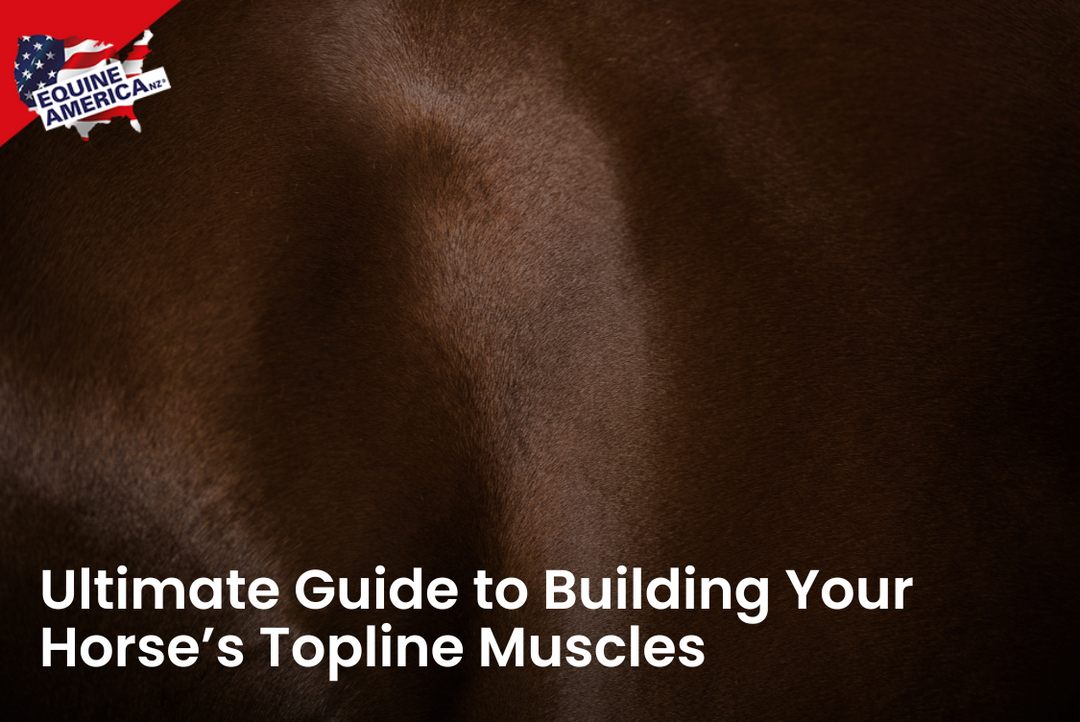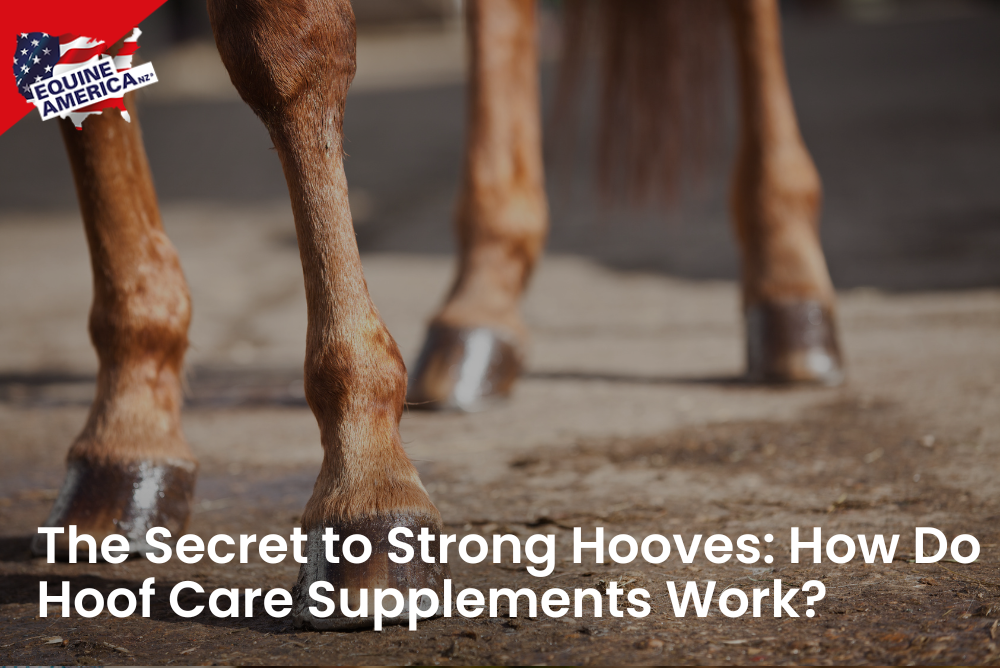
Ensuring your horse gets the right nutritional support is key to their overall health and performance. Supplements can fill crucial gaps, providing targeted aid for joints, hooves, coat quality, and more. But with so many options available, selecting the right product requires careful consideration.
In this article, we explore five essential questions to ask before introducing any supplement into your horse's diet. By understanding your horse's unique needs, you'll be better equipped to choose safe, effective, and beneficial supplements.
What Is the Nutritional Need of My Horse?
Every horse is unique, and understanding their nutritional needs is the foundation of a healthy diet. Nutritional requirements are shaped by factors like age, breed, workload, and health status.
For instance, a young, active horse may need extra protein to support muscle growth, while an older horse might need supplements for joint support. Metabolic conditions like insulin resistance or Cushing's disease can also dictate specific dietary needs. To identify nutritional gaps accurately, a comprehensive veterinary assessment is essential.
A well-rounded evaluation can include blood tests to reveal deficiencies or excesses and a close examination of your horse’s current diet. Is your horse getting enough essential vitamins, minerals, and proteins from its feed? Does the forage offer balanced nutrition, or is the pasture lacking key nutrients due to soil quality or seasonal changes?
Performance horses, for example, may require electrolyte supplementation to replace minerals lost through sweating, particularly during hot weather or intense training. Broodmares need extra calcium during pregnancy to ensure healthy foetal development.
And older horses with dental issues may struggle to chew, requiring a soft, easily digestible source of vitamins and minerals. By understanding the precise needs of your horse, you can better select supplements that fill nutritional gaps.
What Are the Ingredients in the Supplement?
The ingredient list is where you discover whether a supplement will truly benefit your horse or simply deliver unnecessary fillers. Be wary of long lists of unpronounceable components, which could mean that the supplement contains artificial preservatives, flavours, or other unnecessary additives.
Fillers can dilute the effectiveness of active ingredients and sometimes trigger allergic reactions. Natural ingredients are generally preferable, though even natural compounds can have side effects if overused or combined with other supplements or medications.
For instance, garlic is believed to have insect-repelling properties but can also cause Heinz body anaemia if given in excessive amounts. It’s crucial to identify each ingredient and its purpose before adding it to your horse’s diet.
Ensure that key active ingredients like glucosamine, biotin, or omega-3 fatty acids are present in sufficient quantities. Some supplement blends rely on proprietary formulas that obscure the exact dosage, which can make it hard to determine efficacy.
For this reason, it's beneficial to consult a veterinarian or equine nutritionist, who can decipher the labels and advise on suitable products.
Is the Supplement Safe and Backed by Research?
Not all supplements are created equal, and the effectiveness of certain products can vary significantly. Some are backed by rigorous scientific research, while others rely on anecdotal evidence or unproven claims. Seeking out products that have undergone clinical trials or peer-reviewed studies is crucial for ensuring safety and efficacy.
Additionally, ensure that the supplement comes from a reputable manufacturer. Look for certifications from independent bodies like the National Animal Supplement Council (NASC) or labels such as "cGMP" (current Good Manufacturing Practice). These endorsements signify adherence to high standards of purity, quality, and safety.
It's also beneficial to consult trusted equine professionals. Veterinarians and nutritionists are often familiar with which products consistently deliver positive results, as well as which ones could cause adverse reactions due to allergies or ingredient interactions.
Avoid falling for aggressive marketing claims or celebrity endorsements. Instead, prioritise supplements that come with a strong scientific pedigree.
How Should the Supplement Be Administered?
Even the best supplement can be rendered ineffective if it's not administered correctly. Carefully read the dosage instructions and follow the recommended amounts based on your horse’s weight and age.
Over-supplementation can lead to toxicity or imbalances, particularly with vitamins and minerals that accumulate in the body over time. Conversely, under-dosing could result in the supplement failing to provide the desired benefits.
Some supplements, particularly those in powdered form, may need to be mixed with molasses or other palatable flavours to encourage picky eaters. Others are formulated as pellets or liquids for easier feeding. If the supplement needs to be given daily, incorporate it into the horse’s regular feeding routine for consistency.
Additionally, ensure the supplement won't interfere with other medications or dietary components. For example, calcium supplements can inhibit the absorption of certain antibiotics. Consulting with your veterinarian can help you establish a dosing schedule that aligns with your horse’s existing regimen, ensuring maximum effectiveness without unintended interactions.
How Will the Supplement Affect My Horse's Health Over Time?
Understanding the long-term impact of a supplement is critical. A product might seem beneficial initially, but without proper monitoring, you could overlook potential side effects or interactions with other medications. Over-supplementation is a common issue, as certain vitamins and minerals can accumulate to toxic levels over time.
Regular monitoring of your horse's condition is essential. Observe any changes in energy levels, coat quality, behaviour, and performance. Is the supplement delivering the expected improvements? Has your horse developed any adverse reactions, such as gastrointestinal upset or unusual behaviour? Blood tests can also provide insight into how well the supplement is being absorbed and utilised.
Work closely with your veterinarian to periodically reassess the supplement’s necessity. A supplement that once filled a nutritional gap may no longer be required if the horse's diet or workload changes. Adjust the dosage or switch products based on these evaluations, ensuring that your horse continues to receive the most appropriate support.
Final Thoughts
Supplements can play a crucial role in supporting your horse’s health, but their effectiveness depends on careful selection and informed usage. By asking these five questions before introducing any new product, you'll ensure that your horse receives safe, effective, and scientifically backed support tailored to their unique needs.
Remember that the best supplement is one that complements your horse’s diet without overwhelming their system. Stay observant, consult experts, and regularly assess the long-term impact on your equine companion's health.
If you’re looking for high-quality equine supplements for your horse, consider exploring the range offered by us here at Equine America NZ. Our extensive selection of products along with performance-enhancing supplements provide you with suitable options to support your horse’s overall health and performance.
Please give us a call at Equine America NZ today at 0800 440 888 to learn more or leave an enquiry.




